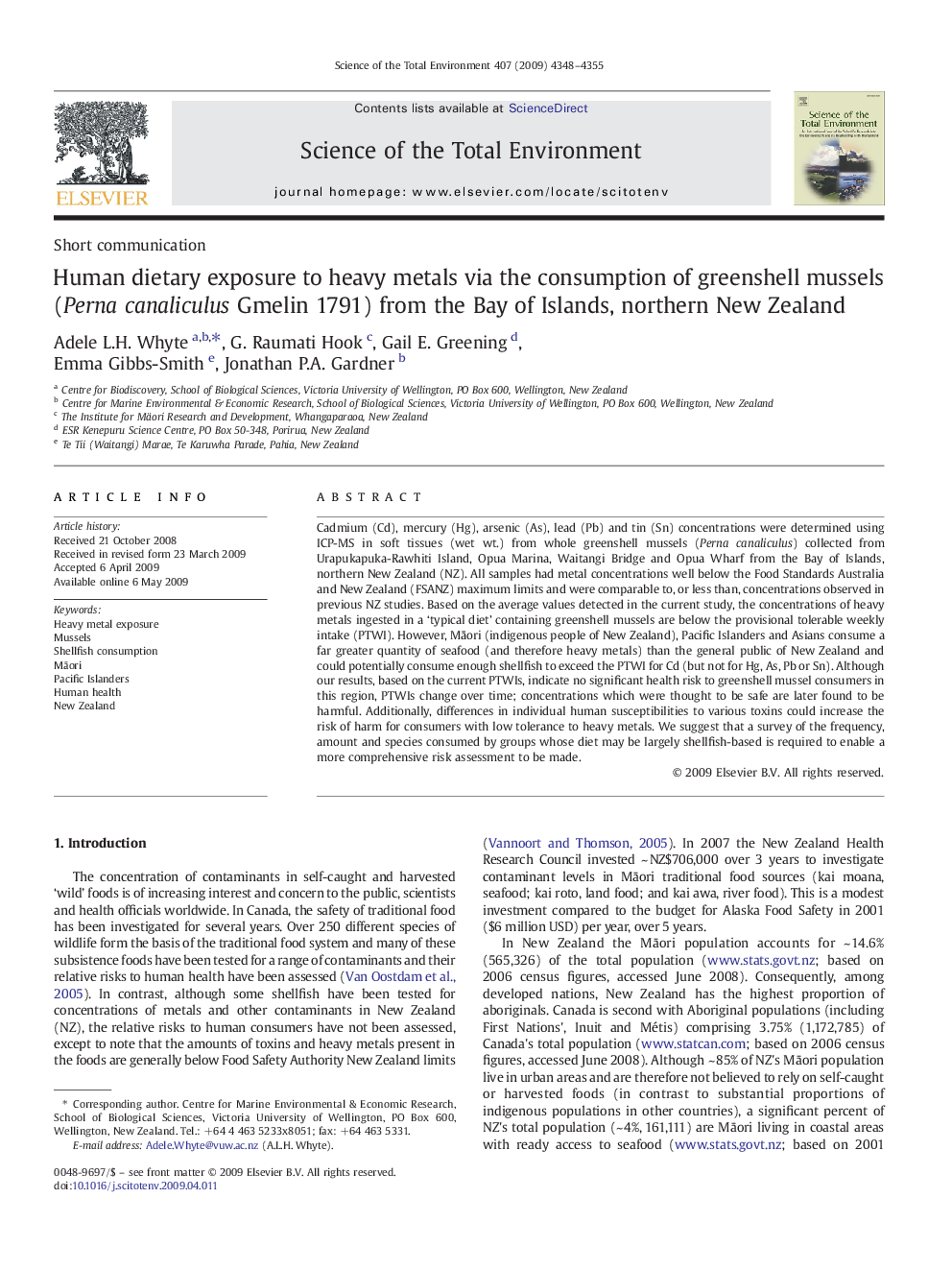| Article ID | Journal | Published Year | Pages | File Type |
|---|---|---|---|---|
| 4431757 | Science of The Total Environment | 2009 | 8 Pages |
Cadmium (Cd), mercury (Hg), arsenic (As), lead (Pb) and tin (Sn) concentrations were determined using ICP-MS in soft tissues (wet wt.) from whole greenshell mussels (Perna canaliculus) collected from Urapukapuka-Rawhiti Island, Opua Marina, Waitangi Bridge and Opua Wharf from the Bay of Islands, northern New Zealand (NZ). All samples had metal concentrations well below the Food Standards Australia and New Zealand (FSANZ) maximum limits and were comparable to, or less than, concentrations observed in previous NZ studies. Based on the average values detected in the current study, the concentrations of heavy metals ingested in a ‘typical diet’ containing greenshell mussels are below the provisional tolerable weekly intake (PTWI). However, Māori (indigenous people of New Zealand), Pacific Islanders and Asians consume a far greater quantity of seafood (and therefore heavy metals) than the general public of New Zealand and could potentially consume enough shellfish to exceed the PTWI for Cd (but not for Hg, As, Pb or Sn). Although our results, based on the current PTWIs, indicate no significant health risk to greenshell mussel consumers in this region, PTWIs change over time; concentrations which were thought to be safe are later found to be harmful. Additionally, differences in individual human susceptibilities to various toxins could increase the risk of harm for consumers with low tolerance to heavy metals. We suggest that a survey of the frequency, amount and species consumed by groups whose diet may be largely shellfish-based is required to enable a more comprehensive risk assessment to be made.
